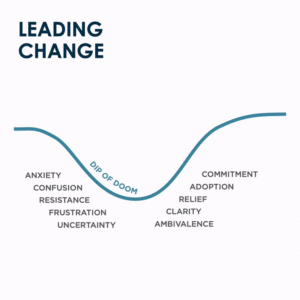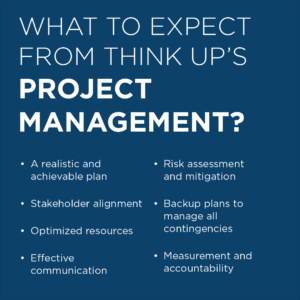Senior consultants Annie Yukish and Emelyn Shabel recently attended the ATD 2021 International Conference in Salt Lake City, Utah to uncover and learning trends, insights, and innovations to consider for future client solutions. Here’s what caught their ear and why!
1. DELIBERATE PRACTICE
What caught our ear:
Angela Duckworth, Founder & CEO of Character Lab talked about the value of deliberate practice. Deliberate practice involves picking a small sub-skill, practicing it with 100% focus, getting feedback and reflecting on your performance.
Why we’re thinking about it:
Lots of reasons! This has me asking multiple questions: Do we spend enough time focusing on small sub-skills to build greater capability? As the workforce wants more learning in the flow of work, how can we also allow learners 100% focus on practice? Other than coaching, what are new ways we can make learning feedback more customized to a person’s performance? On the whole, how can we move from “try it a few times” to deliberate practice?
2. CURATION SKILLS
What caught our ear:
Elliott Massie, Chair of The Learning Consortium, said one of the keys to being a Learning and Development professional today is curation skills – serving up the right content at the right time for every individual.
Why we’re thinking about it:
We’ve heard many organizations tout the vast library of learning resources they have; “employees can go get anything they need.” In our experience, people hardly ever seek out what they need. This goes back to the adage of “just in time” learning. We think organizations have forgotten this a bit. Or it could be that curation is too difficult? We’d love to work on this problem with one of our clients!
3. CARD GAMES
What caught our ear:
Karl Kapp, Professor from Bloomsburg University said to never underestimate the value of a good old-fashioned card game.
Why we’re thinking about it:
Clients are always interested in what’s new and cool in learning. And so are we! At Think Up, our Learning Community of Practice stays up-to-date on all the new experimental and tech-enabled approaches to teaching. What we have to keep reminding ourselves, though, is that the delivery vehicle can sometimes be a distraction. For example, Emelyn attended a virtual training class recently and her on-screen presence was an avatar. She didn’t know how to move it and spent the entire session trying to walk around a tree. (She wasn’t sure how the avatar was going to enable learning anyway.) Card games, on the other hand, we all understand. We know how to sort, shuffle, deal… And Karl reminded us that cards can be used to accomplish a lot: draw a role play, sort True/False, prioritize in order, create a process flow, categorize, make a scenario-based decision, etc. We love this reminder that simple solutions should not be overlooked – and sometimes the familiar way is still the best.
4. LXP vs LMS
What caught our ear:
Brandon Williams presented LXP vs. LMS: Navigating the Future of Personalized Learning. He urges us as learning professionals to always ask for the 3-5 year roadmap when evaluating, recommending, or purchasing technology.
Why we’re thinking about it:
Searching for the right learning platform and other technologies for our clients is no small feat, and it’s easy to get swept up in the features that are available right now. There’s a lot of focus on piloting the products in their current state, but rarely do vendors provide any insight into what’s next. Technology is changing quickly, as are the needs of organizations. A better approach is to assess platforms based on their ability to grow and evolve with an organization for the next 3-5 years.
5. EXPERIMENT/DO METHOD
What caught our ear:
Britt Andreatta, author of Wired to Grow, explained how the “experiment/do” method is the place where learners are actually building new neuron pathways. And it is the repetition of “doing” that builds patterns of clarity.
Why we’re thinking about it:
We’ve known that simply lecturing and telling content doesn’t ensure learner retention or application of new skills. However, hearing more about the science behind why certain methods of learning are less effective than others encourages us to push learning design to include plenty of practice and “doing.” If we want our learners to demonstrate certain behaviors, they need plenty of time and space in the learning journey to practice, practice, practice!



